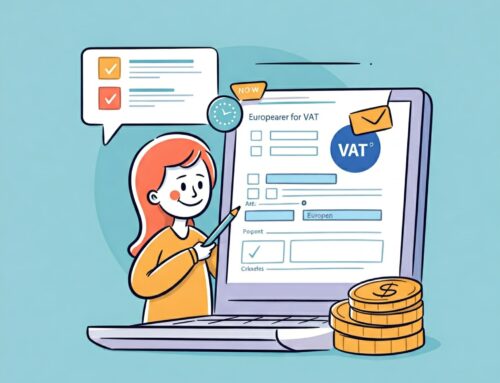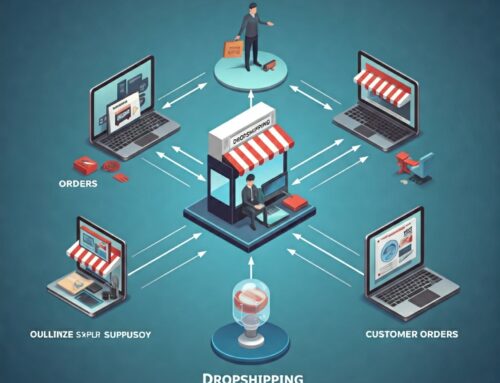This article has been written after the the substantial change in VAT regulation of July 2021.
Bureaucracy with Ease – Exploring the Best Country to VAT Register in EU
When determining the best country to register your business for selling digital goods in the EU, consider the following factors:
- Ease of doing business: Evaluate the ease of doing business in each country, considering factors such as company registration processes, administrative requirements, and overall bureaucracy. Look for countries with streamlined procedures and a business-friendly environment that simplifies setting up and running your digital business.
- Digital infrastructure: Assess the quality of digital infrastructure and internet connectivity in each EU country. Look for countries with reliable, high-speed internet access and advanced digital infrastructure that can support seamless delivery of digital goods to customers.
- VAT regulations: Consider the VAT regulations specific to digital goods in each country. Look for countries that have clear and favorable rules regarding the taxation of digital products. Some countries may offer simplified VAT procedures or lower VAT rates for digital goods, which can simplify compliance and potentially reduce costs. For a complete overview on VAT, have a look at our Full VAT guide in Europe.
- Language and cultural fit: Consider the language preferences and cultural nuances of each EU country. Selling digital goods often involves providing customer support, marketing materials, and content in the local language. Choose a country where your target audience aligns with the language you can effectively communicate in.
- Intellectual property protection: Ensure that the EU country you choose provides robust intellectual property protection for digital goods. Look for countries with strong copyright laws and effective mechanisms for enforcing intellectual property rights. This safeguards your digital products from unauthorized distribution and piracy. For any doubt on legal requirements, visit our post on Legal requirements to sell online in Europe or ask our Free Online Legal and GDPR consultant in EU.
- Regulatory environment: Evaluate the overall regulatory environment for digital businesses in each country. Consider factors such as data protection laws, consumer rights, and any specific regulations related to the sale of digital goods. Look for countries with favorable regulations that align with your business model and minimize potential legal complications.
- Digital business ecosystem: Assess the presence and vibrancy of the digital business ecosystem in each country. Look for countries with a thriving startup culture, digital marketplaces, and supportive initiatives for digital entrepreneurs. A robust ecosystem can provide networking opportunities, access to potential partners or investors, and a favorable environment for business growth.
When aiming to introduce your business and sell digital goods in multiple EU countries, the determining factor to consider is normally the ease of establishing and registering your company in a specific EU country. In terms of ease of bureaucracy, one country that often stands out in the EU is Estonia.
Why Estonia could be considered a favorable choice?
- E-government and digitalization: Estonia is known for its advanced e-government infrastructure and digitalization efforts. The country has implemented numerous digital solutions, including e-residency, digital signatures, and online government services. This digital ecosystem streamlines bureaucratic processes, making it efficient and user-friendly for businesses.
- Company registration: Estonia offers a straightforward and efficient process for registering a company. The e-residency program enables non-residents to establish an Estonian company remotely, reducing the need for physical presence. The online platform allows for quick registration, minimal paperwork, and access to various government services.
- Online tax system: Estonia operates a simple and transparent online tax system. Businesses can conveniently file and manage their taxes online, reducing administrative burdens. The digital tax platform enables efficient communication with tax authorities and facilitates compliance.
- Business-friendly regulations: Estonia has implemented business-friendly regulations, promoting entrepreneurship and innovation. The country has a reputation for fostering a startup culture and supporting small and medium-sized enterprises. The flexible regulatory framework and favorable business environment contribute to reduced bureaucracy.
- Efficient public services: Estonia has digitized numerous public services, including banking, healthcare, education, and legal procedures. This digitization enables businesses to access and interact with government services seamlessly, reducing the need for extensive paperwork and physical visits to government offices.
- Supportive business ecosystem: Estonia offers various support programs, incubators, and initiatives for startups and businesses. Organizations like e-Residency, Startup Estonia, and the Estonian Investment Agency provide resources, networking opportunities, and guidance to businesses operating in the country.
If you want to start selling in EU, visit our complete guide on How to start your business in Europe. And for any doubt on accounting, vat and taxes you can ask our Free Online VAT and tax consultant in EU.





